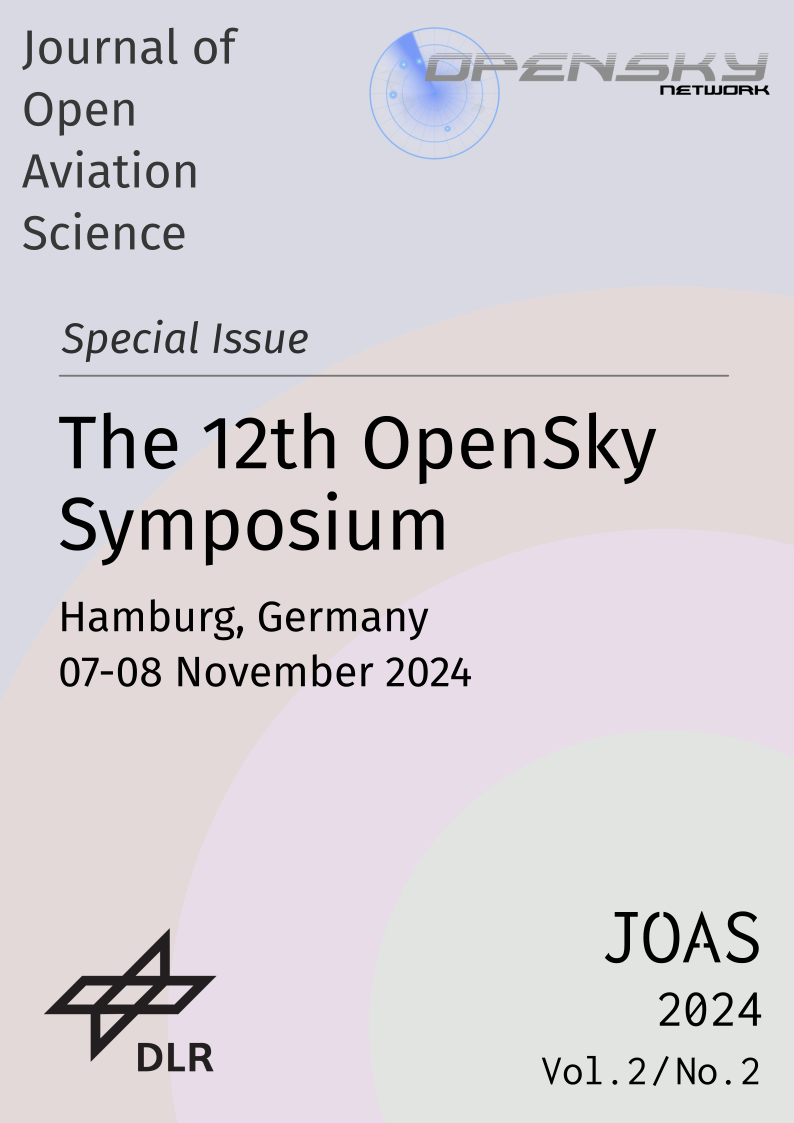Assessing Climate Effects Resulting From Airspace Closures Following the Ukrainian Crisis
DOI:
https://doi.org/10.59490/joas.2024.8152Keywords:
trajectory calculation, climate impact assessment, air transport operations, non-CO2 effects, reroutingAbstract
Closures of the Russian and Ukrainian airspace following the Russian invasion of Ukraine in February 2022 have influenced international air transport. Flights have to be re-routed leading to increases in mission distance, flight time, fuel consumption and CO2 emissions. However, the climate impact of aviation is also significantly determined by non-CO2 effects which do not only depend on emission quantities but also emission location and time. Therefore, this paper aims to quantify the climate impact from Russian and Ukrainian airspace closures in context of the Ukrainian crisis. The analysis is built on open-source flight track data as provided by The OpenSky Network applied in the Integrated Trajectory Calculation Module. Climate impact evaluation is performed in a climatological approach using climate chemistry response model AirClim. The analysis confirms an increase in fuel consumption and CO2 effects for a mission-specific comparison of pre invasion and post invasion air traffic scenarios. By contrast, the climate impact from non-CO2 species decreases disproportionately leading to a slight reduction of the total climate impact. This is caused by changes in emission latitude and altitude. On a larger temporal scale, a comparison of annual pre and post invasion scenarios is also influenced by changes in flight plans and fleet composition. While airspace closures have significantly influenced aviation in terms of fuel consumption, flight time and operating cost leading to economic disadvantages, an environmental disadvantage regarding the climate impact of aviation cannot be confirmed.
Metrics
Downloads
Published
How to Cite
Issue
Section
License
Copyright (c) 2025 Zarah Lea Zengerling, Sami Kumpa, Maximilian Clococeanu, Maximilian Mendiguchía Meuser, Julian Solzer, Katrin Dahlmann

This work is licensed under a Creative Commons Attribution 4.0 International License.


